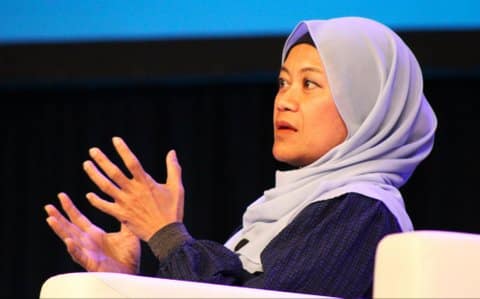
12 Jan They Lost Loved Ones to Violent Bigotry. Now, They’re Working to Stop the Hate

Dr. Hamimah Tuyan, seen at the Eradicate Hate Global Summit, lost her husband in a mass shooting at a mosque in Christchurch, New Zealand.
Editor’s note: The Eradicate Hate Global Summit began in 2021 in response to the mass shooting at the Tree of Life synagogue in Pittsburgh. Last year, The CC Pulse was there for the first time in service of our Stop the Hate coverage. This is one of many stories we will publish that is about or inspired by the summit.
Story and photos by Joe Porrello
PITTSBURGH — Michelle Rosenthal’s brothers were at their synagogue. Hamimah Tuyan’s husband was at a mosque. Susheel Gupta’s mother was on a plane. Jeff Binkley’s daughter was at a yoga studio. Victoria Jabara’s brother was outside the family home. They were all killed in attacks motivated by hate.
These indirect victims of hate-based tragedy — the loved ones left behind — spoke at the Eradicate Hate Global Summit about how they are using their experience to become an integral force in the battle against bigotry.
With the U.S. experiencing 28 mass killings in the first half of 2023 — more than any other six-month period since 2006 — hate can feel insurmountable. Victims and loved ones of those lost to hateful violence believe their stories can help change that narrative.
Michelle Rosenthal’s disabled older brothers were two of 11 worshippers killed at the 2018 Tree of Life Synagogue shooting in Pittsburgh.
In their honor, Rosenthal began Love Like the Boys, which promotes random acts of kindness and helps those with intellectual or developmental disabilities.
“I obviously never saw myself being in this position… I have these moments where I’m like, ‘I can’t believe this is my life,’ ” she told the Pulse. “The biggest thing for me is to not have anybody else go through what myself and the other families have gone through.”
The synagogue shooting also led to the forming of the summit. Rosenthal is on its board of directors and is co-chair of its sports working group, which uses teams’ and athletes’ platforms to combat bigotry.
- Eradicate Global Hate Summit board member Michelle Rosenthal, whose brothers were killed in a mass shooting at their synagogue, told the Pulse she is pleased with the growing number of anti-hate initiatives and support from around the world but is frustrated with the lack of change despite their efforts,
“This is not just a U.S. problem; this is a global problem,” she told the Pulse. “The summit brings us hope that we can do something to effect change… It brings me strength to be here.”
Jeff Binkley’s daughter Maura was shot to death in 2018 in Tallahassee, Florida — six days after the Pittsburgh synagogue massacre. Maura attended a memorial service for the Tree of Life victims at Florida State University five days prior to her own memorial in the exact same location.
Police said the gunman had a “lifetime of misogynistic attitudes,” CNN reported.
“Maura and the other victims were shot for no other reason than being women,” Binkley said.
In the aftermath of the tragedy, Binkley formed Maura’s Voice, which focuses on preventing violence against women and girls and that driven by hate. He also formed a research fund at FSU and works with faculty and members of Maura’s sorority to curb hate.
He says research into behavioral aspects of incel subculture and the use of threat assessment signs will help identify, predict and prevent hate-based violence.
Susheel Gupta said that anticipating when bigotry may lead to violence is critical. Gupta, senior strategic operations advisor for national security for the Royal Canadian Mounted Police, also said responding on the fly during a tragedy is ineffective.
“Let’s face it: We know there will be acts of hate, mass violence and terrorism in the future, and they can be better prepared to respond to the needs of survivors,” he said.
Gupta’s mother, Ramwati, was one of 329 people aboard Air India flight 182 in 1985 when it exploded midair because of a bomb. It was the deadliest aviation terror attack in the world until 9-11, and it remains the deadliest terrorist attack against Canadian citizens, who made up most of the passengers.
Gupta is now a member of the International Network Supporting Victims of Terrorism and Mass Violence.
- Anti-hate activist and secondary victim of hate-based terrorism Susheel Gupta said on a panel that the dialogue among experts at the Eradicate Hate Global Summit and the changes he has seen in his 38 years of advocacy give him hope.
Victoria Jabara is president of the Khalid Jabara Foundation, which aims to help cultivate a society free of hate enriched by love and empathy and to make neighbors out of strangers.
The foundation is named after her brother, who was shot and killed in 2016 outside his family’s home in Tulsa, Oklahoma.
According to Jabara, her mother, Haifa, was hit by a car driven by the same man — their neighbor — two months prior. She suffered a brain hemorrhage, broken ribs, a broken ankle, a damaged shoulder and a broken bone in her arm.
Stanley Vernon Majors was charged in connection with the hit-and-run and was jailed as he awaited trial, eventually being released on bail. Before the hit-and-run case went to trial, Haifa Jabara heard her son being killed over the phone.
Majors was convicted of first-degree murder and a hate crime in Khalid Jabara’s death, among other charges, for which he was sentenced to life in prison.
Victoria Jabara said her brother’s death could have been prevented.
“Nobody paid attention when we said, ‘This person is spewing hate, threatening us,’ and obviously it resulted in not only him killing my brother but also running over my mother,” she said, adding that the case was not registered in the federal hate crime database.
Jabara shares her family’s story with law enforcement to ensure they do not fail others in similar situations, while also contributing to legal reform and the development of new policies and legislation.
President Biden in 2021 signed the Jabara-Heyer NO HATE Act, also named after Heather Heyer, who was killed during a violent white nationalist rally in Charlottesville, Virginia, in 2017.
The bill establishes grants for states to create hate crime reporting hotlines, authorizes grants for states and local governments to implement a national incident-based reporting system, and to conduct law enforcement activities or crime reduction programs to prevent, address, or respond to hate crimes.
>>>California’s Hotline: (833) 866-4283<<<
Jabara’s daughter was 3 when her uncle died. Jabara wanted a way to tell the youngest people in the community what happened, so she created “Social Justice Story Hour.”
Actively educating youth is key to Jabara, who says her daughter’s mantra seven years after the death of her uncle is, “Peace begins with me.”
Dr. Hamimah Tuyan also stressed the importance of youth in curbing hate.
“It’s about wanting a future where our children — they and their peers — feel they belong, can be their authentic selves, and empower to advocate for each other regardless of their physical appearance and attributes,” she said.
Tuyan’s husband was one of 51 lives lost during a mass shooting at a mosque in Christchurch, New Zealand, in 2017. She called the tragedy “a coordinated effort to destroy our faith.” Tuyan, along with other direct and indirect victims from Christchurch, became part of the Sakinah Community Trust.
Wanting to rekindle the community togetherness that formed out of tragedy without needing such drastic circumstances, Tuyan initiated Unity Week, which takes place during the period in March when the mosque shooting occurred.
Tuyan acknowledged it is difficult for those who have experienced hate to trust others, which should not be diminished, but asks that people place their trust in humanity and the power of unity.
Tuyan said coordinated victim centers that are faith-based and culturally affirming are needed to serve survivors in situations like hers.
“No one came to me and asked how they could help — they told me what I needed,” she said.
>>>Q&A: ‘Our Folks Are Scared’ — Center Gives Refugees, Immigrants Therapy for Racism and Other Trauma
Input from people like the panelists enable government and law enforcement to better accommodate the needs of victims of hate-fueled violence, while reminding us of the truth and undeniability of the massacres that have occurred, said Jennifer Ciardelli.
Working at the U.S. Holocaust Museum, Ciardelli said one of her greatest privileges is engaging with survivors because their stories open both the mind and dialogue, which she deems pivotal to curb hate.
While striving to capture, convey and preserve stories from victims of bigotry-based violence, Ciardelli wants to honor their voices in ways that maintain dignity and don’t continue to cause trauma through live retellings.
“We need to value and recognize the personal testimony,” she said. “There’s a toll that comes with reliving these really traumatic moments.”
With tragedy changing their lives and driving them to make a difference, the speakers are now using their adversity to set an example for future victims of hate.
“To all of you that didn’t choose to be a part of this community that are in the room — the survivors — I see you,” Rosenthal said, “and I know you have valuable stories to tell as well.”
Any victim of or witness to a hate incident or crime in California can report it and receive support any time at CAvsHate.org. You can also call 833-8-NO-HATE; (833) 866-4283 Monday – Friday from 9:00 am – 6:00 pm. If outside of those hours, you can leave a voicemail, or you can call 211 to report hate and seek support. You can currently submit reports online in 15 languages and, when calling the hotline, you can get access to support in over 200 languages. If you want to report a hate crime to law enforcement immediately or you are in present danger, please call 911.
This resource is supported in whole or in part by funding provided by the State of California, administered by the California State Library in partnership with the California Department of Social Services and the California Commission on Asian and Pacific Islander American Affairs as part of the Stop the Hate program. To report a hate incident or hate crime and get support, go to CA vs Hate.



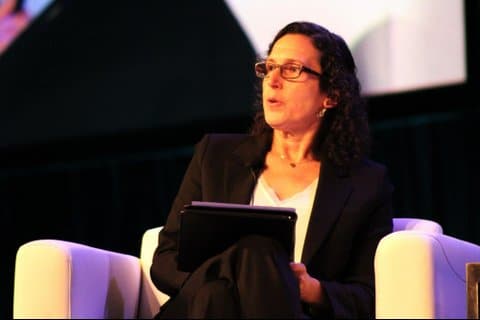
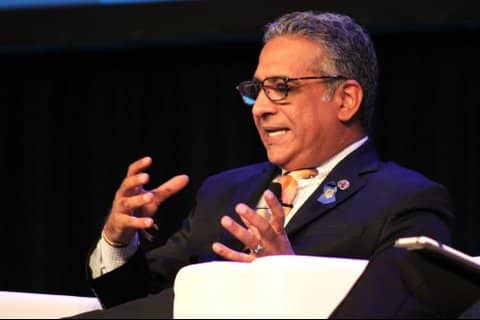
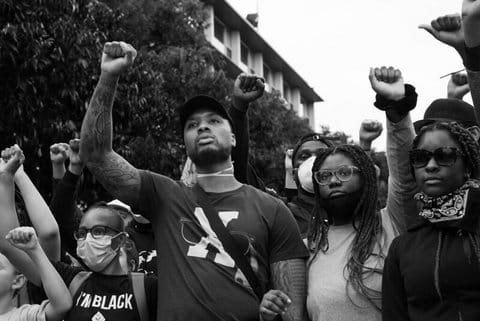
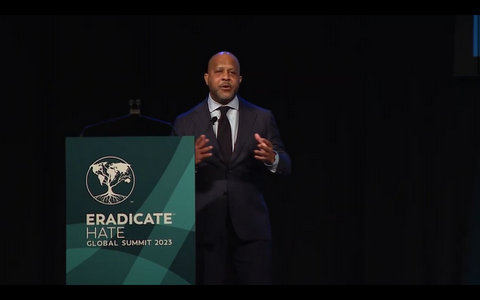
No Comments